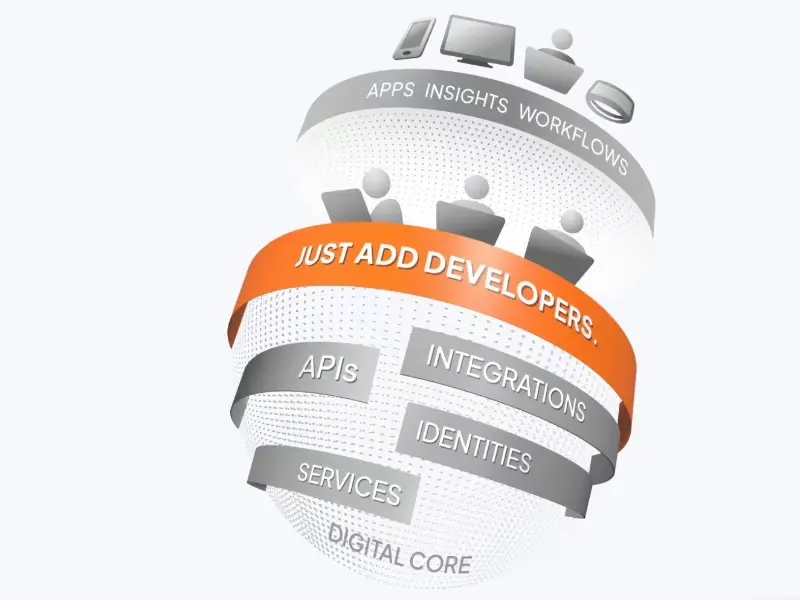- WSO2 is a technology provider specialising in middleware, integration, and API management solutions.
- The company offers a wide array of open-source products, including the WSO2 Carbon platform and the WSO2 API Manager.
- WSO2 demonstrates its commitment to open source through its business model, community engagement, and contributions to open-source projects.
Open-source solutions offer flexibility, transparency, and cost-effectiveness, making them increasingly popular among businesses seeking innovation and agility. WSO2, a technology provider, offers a comprehensive suite of middleware, integration, and API management solutions.
WSO2: an overview
WSO2 focuses on middleware and integration solutions, empowering organisations to seamlessly connect disparate systems, streamline business processes, and accelerate digital transformation. At the heart of WSO2’s offerings lies the WSO2 Carbon platform, a comprehensive middleware framework designed for building, deploying, and managing enterprise applications. Built on open-source technologies such as Apache Tomcat, Apache Axis2, and Eclipse Equinox, the WSO2 Carbon platform provides a robust foundation for developing scalable, modular, and interoperable applications across diverse environments.
In addition to middleware and integration solutions, WSO2 offers a comprehensive API management platform designed to facilitate the creation, publication, and management of APIs. The WSO2 API Manager enables organisations to leverage their digital assets, streamline API lifecycle management, and foster collaboration with internal and external stakeholders. From API design and documentation to security enforcement and analytics, the WSO2 API Manager provides end-to-end capabilities for empowering developers, accelerating innovation, and driving business growth.
Unlike many proprietary software vendors, WSO2 embraces open-source principles, offering its core products under permissive licenses such as the Apache License 2.0. This allows organisations to freely download, modify, and distribute WSO2’s software, fostering a culture of collaboration, innovation, and knowledge sharing.
Also read: What is the Open Source Ecosystem Enabler (OSEE)?
The open-source ethos: exploring WSO2’s approach
WSO2’s open-source business model revolves around providing value-added services, support, and consulting options for its open-source products. While the core software is freely available for download, organisations can opt for subscription-based services, which include enterprise-grade support, training, and consulting services. This hybrid approach enables organisations to leverage the benefits of open-source software while accessing professional expertise and ensuring business continuity.
Central to WSO2’s open-source ethos is its vibrant and inclusive community of developers, contributors, and enthusiasts. WSO2 actively fosters community engagement through various channels, including online forums, user groups, and collaborative projects. Additionally, WSO2 organises community events, hackathons, and workshops to promote collaboration and empower individuals to harness the power of open source for solving real-world challenges.
WSO2 is committed to contributing back to the open-source ecosystem, supporting various initiatives and projects across different domains. The company actively participates in open-source communities, standards bodies, and industry consortia, driving advancements in areas such as cloud computing, microservices architecture, and API standards. For example, WSO2 is a key contributor to the Apache Synapse project, an open-source enterprise service bus (ESB) implementation, which forms the foundation of WSO2’s middleware platform.
Also read: Open Source in Asia: NetDEF’s Martin Winter on talent and challenges
WSO2’s impact: real-world examples
Numerous organisations worldwide have embraced WSO2’s open-source solutions to drive their digital transformation initiatives. For instance, Yoma Bank has utilised WSO2 API Manager to expedite the provision of consistent customer experiences on a global scale, eradicate redundant procedures and repetitive tasks, and enhance data accessibility. Using WSO2’s software, the bank was able to seamlessly integrate 20-plus siloed systems through more than 100 APIs in just one year, as well as catalog the APIs to standardise access and promote reuse among development teams. Yoma Bank also takes advantage of WSO2 API Manager analytics to further improve reuse and streamline operations.
Similarly, Schneider Electric, a corporation that specialises in energy management and automation solutions, helps customers to optimise their processes, manage their energy supply, and their grids. Schneider Digital from Schneider Electric is responsible for building a scalable and reliable architecture, ensuring customers have great digital experiences, rolling out digital tools across the organisation, and creating value from digital platforms. Schneider Digital uses WSO2 Enterprise Integrator to achieve these objectives.
Panasonic India, an electronics company, establishes an IoT platform based on open-source software, with WSO2 Identity Server chosen for IAM due to its stability, scalability, and cost-effectiveness. The MirAIe platform, utilising WSO2, registers and manages IoT devices, ensuring secure authentication via OAuth, and enabling rapid expansion with improved customer experiences.

